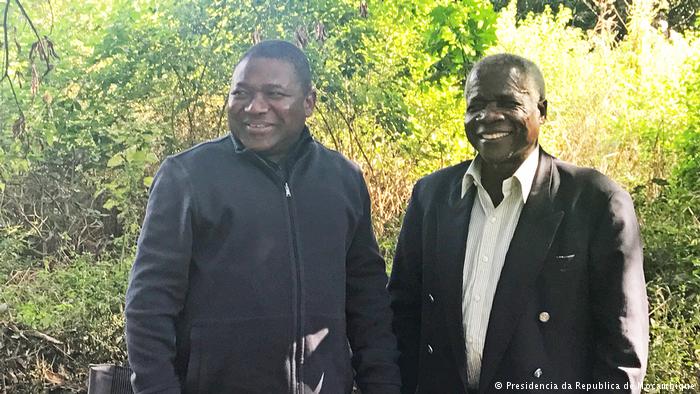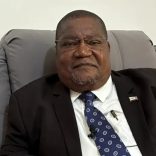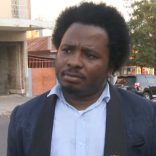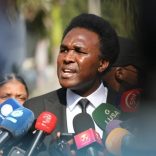Mozambique: Boost multilateral cooperation with UN to tackle world crises - govt
Council of Religions worried about conflicts – Mozambique

DW (File photo) / Filipe Nyusi, President of Mozambique, and Afonso Dhlakama, leader of Renamo
Since Mozambique adopted a multi-party system in 1994, pre-election periods have been characterised by armed conflict. Now, the Council of Religions of Mozambique has been demanding a solution to the problem.
Mozambican religious congregations are united in the quest to prevent the pre-election conflicts that have been taking place since 1994, when the multi-party system was established.
They are in favour of national reconciliation, not bellicose pronouncements and similar actions often characteristic of pre and post-election periods.
Afonso Dhlakama, leader of the Mozambican National Resistance (Renamo), the main opposition party, has reiterated that a decentralisation agreement will be presented in March. But he warned that, if it fails to materialise, “I would not like to be called a warmonger”.
Dhlakama out of the woods
It is for this very reason that the president of the Council of Religions of Mozambique, Artimiza Franco, advocates Dhlakama leaving the forests of Gorongosa, in Sofala, central Mozambique. “For us to make a reconciliation, a properly carried out reconciliation, he needs to come out of the woods,” she says.

Afonso Dhlakama has been in Gorongosa since 2015, and still claims victory in that year’s general elections.
Mozambicans will vote in municipal elections in October of this year, and in 2019 will choose a new president and parliament.
The Mozambican opposition has accused the Liberation Front of Mozambique (Frelimo), the ruling party, of fraud both before and after the elections, resulting in armed conflict. “And if these two processes are not well managed, we will again fall into armed conflicts,” Franco warns.
Bandits v. the religious in the north
The province of Cabo Delgado, in the north of the country, has been targeted by armed men who say they are religious people, but in the eyes of the Rev. Albino Mussei, secretary general of the Council of Religions of Mozambique, the reality is different.
“These thugs are said to be religious Muslims. They enter mosques with shoes, unacceptable in the Islamic faith, carry with them bags that only they can explain, kill ‘chés’, destroy mosques and kill defence and security forces personnel. They are bandits, not religious people,” he says.
Religious people want effective peace, to which end Franco has announced a summit later this month in Beira, central Mozambique. This summit of peace and national reconciliation will be attended by experts from the African Union (AU).
According to Franco, “the AU will send a specialist on political and electoral matters. He will be speaking on one of the themes at the summit, because our country has been in a cycle of war because of elections”.












Leave a Reply
Be the First to Comment!
You must be logged in to post a comment.
You must be logged in to post a comment.